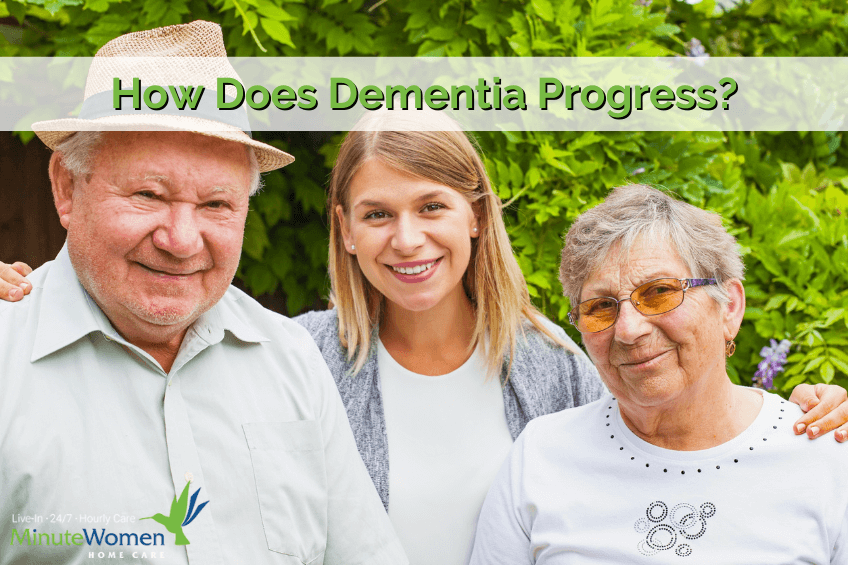Efficient Dementia Care Strategies for a Better Lifestyle
In the realm of dementia treatment, the execution of reliable techniques is critical for improving the lifestyle for both individuals influenced by the illness and their caretakers. Recognizing the distinct stages of dementia enables customized interventions that deal with the progressing requirements of individuals-- from promoting cognitive engagement in the onset to making sure self-respect in late-stage treatment. Moreover, the relevance of interaction methods and a helpful setting can not be overemphasized. What specific techniques can be adopted to promote an ambience of concern and link throughout this tough trip?
Comprehending Dementia Phases

In the beginning, individuals might experience moderate amnesia and trouble with acquainted jobs. Treatment techniques should concentrate on maintaining freedom and giving cognitive stimulation. The middle stage is identified by increased confusion, difficulty acknowledging liked ones, and damaged judgment. Throughout this stage, caregivers must execute organized regimens and make sure a secure setting. In the late stage, people might shed the capability to call for and communicate support with day-to-day activities. Below, caring treatment is necessary, stressing comfort and dignity.
Recognizing these phases enables caretakers to adjust their methods and offer assistance that lines up with the individual's current requirements, inevitably facilitating far better monitoring of the problem and boosting the general caregiving experience. Recognizing mental deterioration stages is for that reason a fundamental facet of effective dementia care.
Interaction Methods
Efficient communication is an important component of mental deterioration treatment, particularly as the disease progresses via its various stages. As cognitive capabilities decrease, it comes to be necessary to adapt interaction methods to satisfy the demands of people with dementia. Utilizing clear, straightforward language is crucial; caregivers should stay clear of complicated sentences and jargon, opting rather for simple, concise expressions.
Non-verbal communication plays a just as considerable role. Faces, motions, and intonation can convey heat and understanding, frequently boosting spoken messages. Preserving eye contact and an open position fosters a sense of link and security, urging individuals with dementia to involve more fully in discussions.
It is likewise beneficial to hold your horses and enable enough time for reactions. People might need added time to procedure details and formulate their thoughts. If comprehension appears doing not have., repeating or putting in other words questions may be required.
Finally, focusing on the individual's rate of interests and individual history can promote more significant interactions. Participating in familiar subjects can stimulate positive memories and emotions, additionally improving the interaction experience (charlotte care home). By employing these techniques, caregivers can substantially boost the quality of interactions, promoting self-respect and respect for people coping with mental deterioration
Producing a Safe Atmosphere
Producing a risk-free setting for people with dementia is important to advertising their well-being and independence. A properly designed space can dramatically lower the threats of mishaps and enhance the high quality of life for those impacted by this condition. Secret factors to consider include reducing mess and making certain clear paths to promote mobility. Getting rid of or safeguarding prospective risks, such as loose rugs, sharp items, or poisonous materials, is crucial in avoiding falls and injuries.
Lighting plays an essential duty also; utilizing all-natural light anywhere possible and including night lights can help individuals navigate their environments securely. Furthermore, classifying spaces and important items can help memory and orientation, lowering confusion and anxiety.
It is likewise crucial to develop an acquainted setting by customizing the room with pictures or cherished things, which can stimulate favorable memories and a sense of belonging.
Including furniture that is both comfy and functional adds to a supportive environment, permitting people to involve in daily tasks easily. Eventually, a safe atmosphere not only safeguards against physical risks yet also fosters a complacency, which is vital for the emotional wellness of those coping with mental deterioration.
Involving Regimens and activities
Involving tasks and organized routines are important parts in the care of people with mental deterioration, as they advertise cognitive function, emotional security, and social communication. These tasks need to be customized to the person's rate of interests, capabilities, and stage of cognitive decline. charlotte care home. Straightforward, repeated jobs such as gardening, crafts and arts, or cooking can give purposeful interaction, permitting people to utilize their skills while promoting a sense of success
Establishing a daily company website routine helps create a predictable environment, which can lower anxiety and complication. This structure can consist of assigned times for meals, tasks, and rest, making sure a balanced technique to life. Including social interactions into these regimens, such as team tasks or going to household, more boosts emotional wellness and combats sensations of seclusion.
In addition, physical activities, such as walking or dancing, not only advertise physical wellness yet likewise promote psychological involvement. Encouraging engagement in community occasions or support teams can supply extra opportunities for socializing. In general, the combination of interesting tasks and organized routines is crucial in improving the quality of life for people with mental deterioration, promoting self-reliance and dignity while addressing their unique requirements.
Sustaining Caregiver Well-Being
Looking after individuals with dementia can be a demanding and psychologically exhausting experience, making it vital to focus on the wellness of caregivers. Caretakers usually deal with high degrees of tension, stress and anxiety, and physical exhaustion, which can lead to burnout if not dealt with appropriately. To sustain their well-being, it is necessary to carry out a complex technique.
First, supplying caretakers with access to education and learning and sources can encourage them with methods to manage everyday difficulties. Support system, both in-person and online, provide a system for sharing experiences, fostering a feeling of area, and reducing sensations click here now of seclusion. Furthermore, break treatment solutions make it possible for caretakers to take necessary breaks, allowing them time to participate in and charge to their very own health and wellness requirements.
In addition, urging caretakers to take part in self-care practices-- such as routine exercise, healthy eating, and mindfulness-- can substantially improve their durability. Advertising open interaction about their sensations and challenges with member of the family or experts likewise assists reduce psychological burdens.
Verdict
Finally, reliable mental deterioration treatment methods encompass a comprehensive understanding of the illness's stages, the implementation of Go Here clear communication methods, the establishment of a risk-free atmosphere, and the promotion of appealing activities and organized routines. Additionally, prioritizing the wellness of caregivers is vital to maintaining top quality care. By incorporating these techniques, the general top quality of life for individuals with dementia can be substantially improved, fostering a supportive atmosphere that advertises self-respect and emotional health.
In the realm of mental deterioration care, the implementation of reliable strategies is important for enhancing the top quality of life for both people influenced by the condition and their caregivers. By employing these techniques, caretakers can significantly boost the quality of interactions, advertising self-respect and respect for individuals living with mental deterioration.

Caring for individuals with dementia can be a requiring and emotionally straining experience, making it crucial to focus on the health of caregivers.